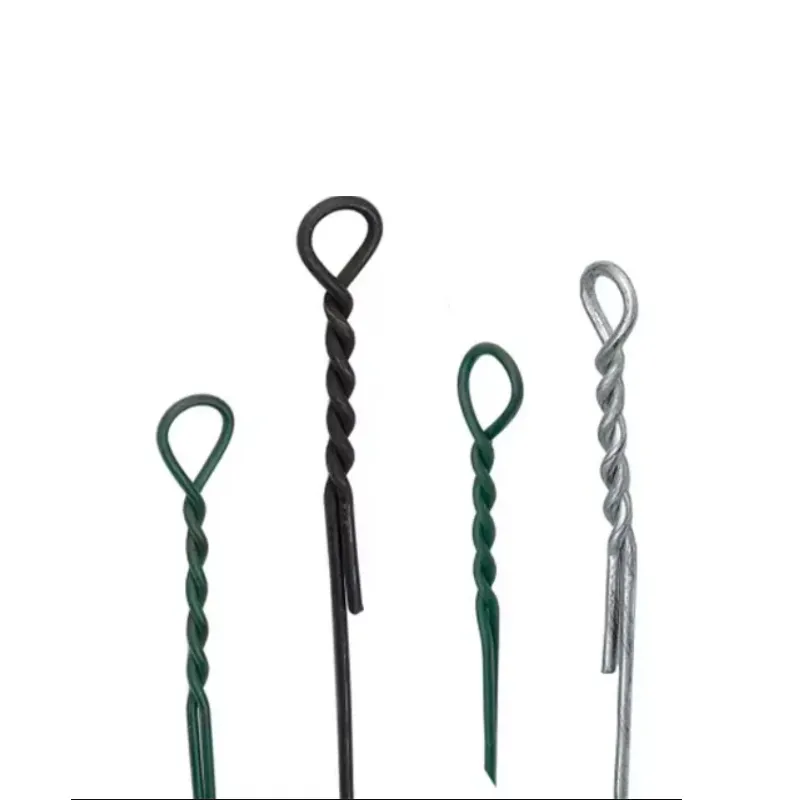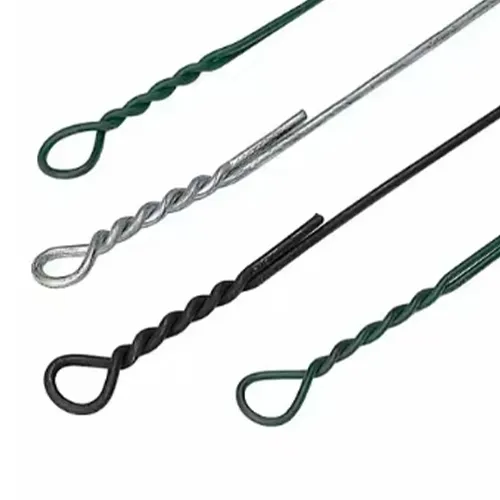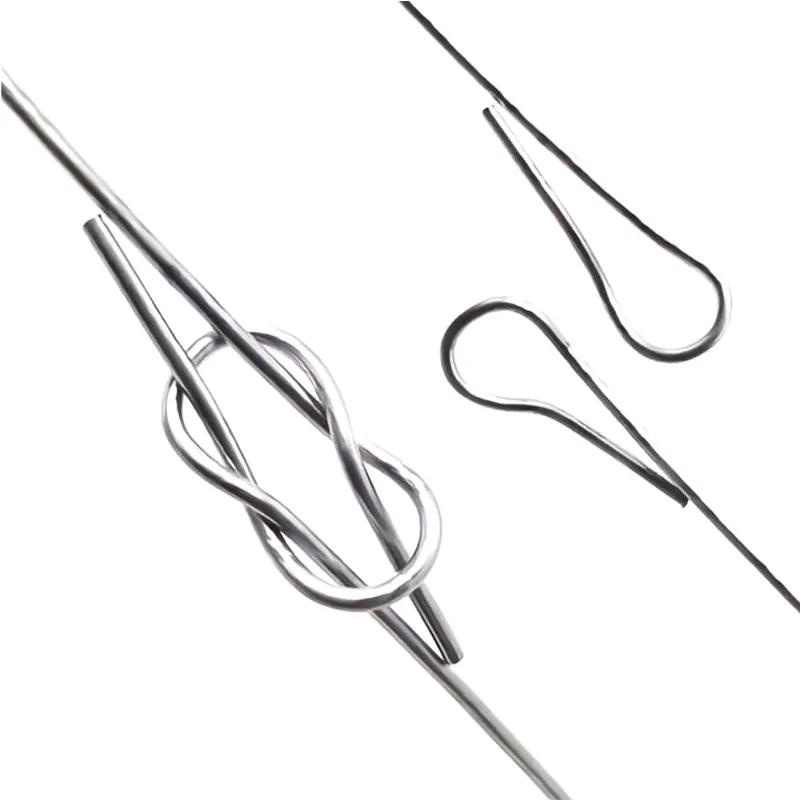-
 Phone:
Phone: -
 Email:
Email:

Premium Baling Wire for Sale: Galvanized & Stainless Steel Direct
Understanding the Market Dynamics of Baling Wire Solutions
In today's dynamic industrial landscape, the demand for robust and reliable baling solutions is ever-growing, particularly within the recycling, agriculture, and construction sectors. As industries strive for greater efficiency and sustainability, the role of high-quality baling wire for sale becomes paramount. This comprehensive guide delves into the essential aspects of Baling Wire, from its intricate manufacturing processes and technical specifications to its diverse applications and the compelling advantages it offers. We aim to provide B2B decision-makers and technical personnel with a deep understanding of market trends, product comparisons, and the critical factors that influence performance and longevity, ensuring informed procurement choices that align with operational demands and environmental commitments.
The market for baling wire is significantly influenced by global recycling rates, agricultural output, and infrastructural development. With increasing regulatory pressures on waste management and a global push towards circular economies, the need for efficient material handling and compaction equipment, supported by durable baling wire, is accelerating. Furthermore, technological advancements in wire drawing and coating processes are continually enhancing product performance, offering superior tensile strength, corrosion resistance, and elongation properties, which translate directly into operational cost savings and improved safety. Understanding these trends is crucial for optimizing supply chain strategies and ensuring access to the best baling wire solutions available, whether sourcing standard baling wire direct or specialized variants.
The Advanced Manufacturing Process of Quality Baling Wire
The production of superior baling wire for sale involves a meticulous multi-stage process designed to impart optimal mechanical properties and durability. It typically begins with high-carbon steel rods, which undergo a rigorous cleaning and descaling procedure to remove impurities that could compromise wire integrity. This is followed by cold drawing, a critical process where the rods are pulled through a series of progressively smaller dies. This mechanical deformation elongates the metal, reduces its diameter, and significantly increases its tensile strength and hardness. Precise control over the drawing speed and die configuration is essential to achieve the desired wire gauge and metallurgical structure, ensuring consistent quality across batches.
Post-drawing, many types of baling wire, especially those requiring enhanced ductility or corrosion resistance, undergo further treatment. For black annealed baling wire, a heat treatment process known as annealing is applied. This involves heating the wire to a specific temperature and then slowly cooling it, which recrystallizes the steel's grain structure, reducing hardness and improving flexibility and ductility, making it easier to tie without breaking. Galvanized baling wire, on the other hand, is subjected to a hot-dip galvanization process where the drawn wire is passed through a bath of molten zinc. This creates a metallurgical bond between the steel and the zinc coating, providing an exceptional barrier against rust and corrosion, significantly extending the wire's service life, particularly in outdoor or humid environments where consistent performance is crucial.

Figure 1: Illustration of a typical wire drawing process, a foundational step in baling wire manufacturing.
Quality control is integrated at every stage of the manufacturing process. Comprehensive testing is performed to ensure the wire meets stringent industry standards such as ASTM A641 for galvanized wire and ASTM A764 for general carbon steel wire. These rigorous inspection protocols include tensile strength tests, elongation tests, and coating thickness measurements (for galvanized wire). Adherence to these standards ensures that each spool of baling wire delivers consistent performance, possesses the necessary breaking strength for demanding applications, and offers a predictable service life. This minimizes downtime and maximizes operational efficiency for end-users across diverse sectors like recycling centers, agricultural farms, and industrial packing facilities that rely on reliable baling wire.
Key Technical Parameters and Specifications
Selecting the appropriate baling wire requires a thorough understanding of its key technical parameters. These specifications directly impact the wire's suitability for specific baling applications, its operational performance, and its longevity. Critical parameters include wire gauge (diameter), tensile strength, elongation, and surface finish (e.g., galvanized, annealed). Wire gauge, commonly measured in American Wire Gauge (AWG) or millimeters, dictates the wire's thickness and, consequently, its breaking strength. Tensile strength, expressed in PSI or MPa, indicates the maximum stress the wire can withstand before fracturing. Elongation, measured as a percentage, reflects the wire's ductility – its ability to stretch without breaking, which is crucial for secure knotting and enduring bale expansion, especially when dealing with high-density materials.
For applications demanding high resistance to environmental factors, galvanized baling wire is preferred due to its superior corrosion protection, which extends its service life significantly in outdoor or moist conditions. Stainless steel baling wire offers even higher corrosion resistance and strength, making it ideal for specialized applications in harsh chemical environments or where non-contaminating properties are essential, such as in certain food processing or medical waste industries. Below is a comparative table detailing common specifications for different types of baling wire for sale, aiding in the selection process based on application requirements and environmental conditions.
Comparative Specifications of Common Baling Wire Types
| Parameter | Black Annealed Wire | Galvanized Wire | High Tensile Wire | Stainless Steel Wire |
|---|---|---|---|---|
| Gauge Range (AWG) | 10-14 | 10-14 | 9-12 | 10-14 |
| Diameter (mm) | 2.0-3.5 | 2.0-3.5 | 2.8-3.6 | 2.0-3.5 |
| Tensile Strength (PSI) | 65,000-85,000 | 70,000-90,000 | 90,000-110,000 | 90,000-130,000 |
| Elongation (%) | 15-25 | 10-20 | 5-10 | 25-45 |
| Corrosion Resistance | Low | High | Medium | Very High |
| Typical Applications | Cardboard, Plastic, Hay | Outdoor Baling, Metal Scrap | High-Density Bales, Heavy Metals | Hazardous Waste, Food Industry |
Beyond these standard metrics, specific applications may require consideration of factors such as coil size, packaging (e.g., stem wire, box wire, stand wire), and compatibility with specific baling equipment. Engaging with suppliers who offer comprehensive technical support and possess deep product knowledge is essential for ensuring that the chosen baling wire direct solution precisely matches operational requirements and optimizes performance, contributing to reduced material waste and increased output efficiency across various industrial operations.
Versatile Applications and Real-World Scenarios
The versatility of baling wire extends across numerous industrial and agricultural sectors, serving as a critical component in the compaction and secure bundling of various materials. In the recycling industry, it is indispensable for processing cardboard, plastics, paper, and metal scrap into dense, manageable bales, facilitating efficient transportation and storage. The choice between black annealed and galvanized baling wire often depends on the material being baled and the storage environment. For instance, galvanized baling wire offers superior performance when baling ferrous metals or materials stored outdoors due to its enhanced corrosion resistance, preventing premature wire degradation and ensuring bale integrity over extended periods.

Figure 2: Galvanized baling wire securely binding recycled cardboard bales, showcasing its application in waste management.
Agriculture represents another significant application area, particularly for baling hay, straw, and cotton. Here, the wire’s flexibility and tensile strength are crucial for forming tight, durable bales that withstand handling and transport. High-tensile baling wire is often preferred for high-density balers, as it can endure the intense compression forces without snapping. Beyond these primary uses, baling wire is also utilized in construction for rebar tying, in general industrial settings for bundling various materials, and even in specialized applications where specific material properties, such as those offered by stainless steel baling wire, are required for hygiene or chemical inertness, underscoring its broad utility in modern supply chains and waste management.
Case studies consistently demonstrate the tangible benefits of utilizing high-quality baling wire. A large-scale municipal recycling facility reported a 15% reduction in wire breakages after switching to a higher gauge, pre-lubricated baling wire direct supplier, leading to significantly less downtime and increased processing volume. Similarly, an agricultural cooperative noted improved bale stability and reduced spoilage of hay bales when transitioning to galvanized wire, which resisted rust and maintained bale integrity over extended outdoor storage periods. These examples underscore how selecting the right type of baling wire for sale directly translates into enhanced operational efficiency, cost savings, and improved product quality across diverse industrial applications.
Technical Advantages and Performance Benefits
The technical advantages inherent in high-quality baling wire are directly linked to its manufacturing precision and material composition. Superior tensile strength ensures that the wire can withstand extreme compaction pressures without snapping, thereby guaranteeing the integrity of bales, even those of highly dense materials like compacted metals. Optimized elongation properties, particularly in annealed wire, allow for secure knot formation without brittleness, reducing the risk of wire breakage during tying and subsequent handling. This balance of strength and ductility is critical for seamless operation in automated baling machines, minimizing costly interruptions and maximizing throughput.
Corrosion resistance is another significant technical advantage, especially for galvanized baling wire. The zinc coating acts as a sacrificial barrier, protecting the underlying steel from rust and environmental degradation. This significantly extends the wire's lifespan, making it suitable for outdoor storage or applications in humid environments, reducing the frequency of wire replacement and associated labor costs. For specialized uses, the non-corrosive and non-reactive properties of stainless steel baling wire offer unparalleled benefits, particularly in industries where material contamination is a concern, such as food processing, medical waste disposal, or hazardous material containment.

Figure 3: Precisely wound baling wire coils, ready for efficient deployment in industrial balers.
Beyond material properties, manufacturing consistency also translates into significant operational benefits. Uniform wire diameter and smooth surface finishes reduce friction within baling equipment, leading to less wear and tear on machinery components, thereby extending the lifespan of balers and reducing maintenance costs. Furthermore, precise spooling and tangle-free presentation, characteristic of quality baling wire direct suppliers, facilitate uninterrupted feeding into automated systems, dramatically improving operational efficiency. These combined technical advantages make investing in premium baling wire for sale a strategic decision that enhances productivity, reduces long-term costs, and ensures reliable performance in demanding industrial applications.
Choosing Your Supplier: Manufacturer Comparison and Custom Solutions
When sourcing baling wire for sale, the choice of supplier is as critical as the product itself. Reputable manufacturers distinguish themselves through adherence to international quality standards such as ISO 9001, demonstrating a commitment to consistent product quality and process control. Evaluating potential partners should include reviewing their certifications, service history, and industry reputation. A supplier with extensive experience in the field, often possesses the technical expertise to provide tailored solutions and deep product knowledge, which is invaluable for complex or unique baling requirements. Partnerships with leading equipment manufacturers or industry associations can also signal a supplier's authority and reliability in the baling wire market.
Beyond standard product offerings, the ability to provide customized baling wire solutions is a significant advantage. This includes tailoring wire gauge, tensile strength, specific coatings (e.g., heavy galvanized), or even custom coil dimensions and packaging to perfectly integrate with existing baling equipment and operational workflows. For instance, a facility dealing with exceptionally dense materials might require a proprietary high-tensile formulation of baling wire that exceeds standard specifications. A manufacturer capable of such customization, supported by in-house R&D and advanced testing facilities, can provide a competitive edge by optimizing performance and reducing operational inefficiencies unique to your specific needs, ensuring maximum value from your baling wire direct purchase.
Evaluating a supplier also involves assessing their customer support and after-sales service. Prompt technical assistance, reliable delivery schedules, and clear warranty policies are indicators of a trustworthy partner. For instance, a provider of baling wire direct solutions that offers dedicated account managers and boasts a high client retention rate typically signifies a commitment to long-term partnerships. This holistic approach to supplier selection ensures not only the acquisition of high-quality baling wire but also reliable support that underpins seamless operations and maximizes the return on your investment, cementing a foundation of trust.
Ensuring Trust and Operational Reliability
Establishing trust with a baling wire supplier is paramount for long-term operational success. This trust is built upon transparent communication, verifiable quality assurances, and robust customer support infrastructure. We pride ourselves on adhering to the highest industry benchmarks, including ISO 9001:2015 certification for our quality management systems, ensuring that every batch of baling wire for sale meets or exceeds stipulated performance criteria. Our extensive service tenure in the industry, coupled with partnerships with leading recycling equipment manufacturers and agricultural associations, solidifies our position as an authoritative and reliable source for all types of baling wire.
Frequently Asked Questions (FAQ)
-
Q: What is the typical lead time for large orders of baling wire?
A: Our standard lead time for large volume orders is typically 2-4 weeks, depending on the specific type of baling wire and current production schedule. Expedited options are available upon request for urgent requirements. We maintain substantial inventory for common gauges of baling wire direct to facilitate quicker turnarounds, minimizing potential delays for our clients. -
Q: What warranty do you offer on your baling wire products?
A: We offer a comprehensive material and workmanship warranty against manufacturing defects for all our baling wire for sale. Specific terms vary by product type and application, but generally cover defects affecting tensile strength, elongation, and coating integrity within a reasonable period of normal use. Detailed warranty information is provided with each order, ensuring peace of mind. -
Q: Can you provide third-party test certificates for your baling wire?
A: Yes, absolutely. We can provide third-party test certificates for mechanical properties (tensile strength, elongation) and coating thickness (for galvanized wire) upon request. This ensures complete transparency and adherence to industry specifications for all our baling wire products, including stainless steel baling wire.
Our dedicated customer support team is available to assist with technical queries, order tracking, and any post-purchase requirements. This commitment to comprehensive service ensures that our clients experience seamless operations and continuous product reliability, reinforcing our position as a preferred partner for all their baling wire needs, from standard black annealed to specialized applications demanding galvanized baling wire or stainless steel variants.
Conclusion: Strategic Investment in Premium Baling Wire
The selection of baling wire for sale is not merely a purchasing decision; it is a strategic investment that directly impacts operational efficiency, safety, and profitability across industries. By understanding the intricate manufacturing processes, critical technical specifications, and diverse application scenarios, B2B decision-makers can make informed choices that yield tangible benefits. From the superior corrosion resistance of galvanized baling wire to the high strength and ductility of annealed wire, each variant offers unique advantages tailored to specific industrial demands. Partnering with a reputable and authoritative supplier ensures access to not only high-quality products but also invaluable technical support, custom solutions, and unwavering trustworthiness.
Investing in premium baling wire minimizes costly downtime due to wire breakages, extends the lifespan of baling equipment, and ensures the secure and efficient handling of baled materials. As industries continue to evolve, driven by sustainability goals and efficiency imperatives, the demand for reliable and high-performance baling solutions will only intensify. Choosing a provider that champions quality, offers comprehensive technical expertise, and stands by its products is fundamental to achieving seamless operations and maximizing the overall return on your baling infrastructure investment.
References
- American Society for Testing and Materials (ASTM) Standards for Steel Wire Products.
- International Organization for Standardization (ISO) 9001:2015 Quality Management Systems – Requirements.
- The Association of Wire Rope Fabricators (AWRF) Technical Guidelines on Wire Properties.
- Recycling Industry Statistics and Market Trends Reports, Global Baling Wire Consumption.
-
Metal Products Company Galvanized Cable for SaleNewsAug.06,2025
-
Maintenance of Rock Wall with Wire MeshNewsAug.06,2025
-
Loop Tie Wire Cost Effective OptionsNewsAug.06,2025
-
High Quality Cable Cu Xlpe Swa Pvc SupplyNewsAug.06,2025
-
Durable Hexagonal Mesh Wire ProductsNewsAug.06,2025
-
Baling Wire Direct Reliable ServiceNewsAug.06,2025
-
Wire Mesh for Every Need: A Practical SolutionNewsJul.25,2025








